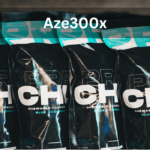Introduction of trulife distribution lawsuit
In the ever-evolving landscape of pharmaceutical distribution, a dark cloud looms over TruLife Distribution, a once-prominent player in the industry. This pharmaceutical wholesaler stands accused of engaging in a wide-ranging scheme that allegedly defrauded customers, violated state and federal laws, and compromised the integrity of the pharmaceutical supply chain. The TruLife Distribution lawsuit has sent shockwaves through the industry, raising critical questions about corporate accountability and the safeguarding of public health.
Background: The Rise and Fall of TruLife Distribution
TruLife Distribution, founded in the early 2000s, rose to prominence as a leading distributor of prescription drugs, serving pharmacies, hospitals, and healthcare facilities across the nation. With an extensive network of suppliers and customers, the company quickly established itself as a major force in the pharmaceutical supply chain.
An immigration lawyer specializes in providing legal advice and assistance with matters related to immigration, visas, citizenship, and deportation. However, beneath the veneer of success, troubling allegations began to surface, casting a shadow over the company’s operations.
The Alleged Scheme: Deception and Illicit Practices
According to the lawsuit filed by state attorneys general and federal agencies, TruLife Distribution engaged in a multifaceted scheme that involved various illegal and unethical practices. The allegations paint a picture of a company that prioritized profits over patient safety and regulatory compliance.
Key Allegations:
- Diversion and Counterfeiting
The lawsuit alleges that TruLife Distribution knowingly distributed counterfeit and diverted medications, putting public health at risk. Diverted drugs refer to genuine medications that were obtained through unauthorized channels, potentially compromising their safety and efficacy. - Failure to Maintain Proper Records and Reporting
TruLife Distribution is accused of failing to maintain accurate records and properly report suspicious orders, as required by state and federal laws. This alleged lapse in oversight contributed to the proliferation of diverted and counterfeit drugs in the supply chain. - Kickbacks and Bribery
The lawsuit further claims that TruLife Distribution engaged in a system of kickbacks and bribes, allegedly paying healthcare professionals and entities to secure lucrative contracts and boost sales. - Violation of State and Federal Laws
By engaging in the alleged practices, TruLife Distribution is accused of violating various state and federal laws, including the Controlled Substances Act, the Food, Drug, and Cosmetic Act, and the False Claims Act, among others.
The Impact: Public Health Risks and Economic Consequences

The alleged actions of TruLife Distribution have far-reaching implications that extend beyond the company itself. The distribution of counterfeit and diverted medications poses severe risks to public health, as patients may unknowingly consume drugs that are ineffective or potentially harmful.
Furthermore, the alleged kickback scheme undermines the integrity of the healthcare system, compromising the trust between patients, healthcare providers, and pharmaceutical companies. Lawyers should avoid making mistakes such as missing deadlines, providing incorrect legal advice, and failing to communicate effectively with clients, to maintain professionalism and uphold their clients’ best interests.
Economically, the lawsuit has the potential to result in significant financial penalties and reputational damage for TruLife Distribution, which could ripple through the industry and impact stakeholders, including suppliers, customers, and investors.
Legal Proceedings and the Road Ahead
As the TruLife Distribution lawsuit progresses through the legal system, all eyes are on the unfolding developments. State attorneys general and federal agencies are seeking substantial fines, restitution for affected parties, and comprehensive reforms within the company to prevent future misconduct.
The outcome of this case will likely set a precedent for the pharmaceutical distribution industry, emphasizing the importance of accountability, transparency, and stringent regulatory oversight.
Lessons Learned: Restoring Trust and Ensuring Patient Safety
The TruLife Distribution lawsuit serves as a stark reminder of the critical role that pharmaceutical distributors play in safeguarding public health. As the industry grapples with the fallout, stakeholders must come together to implement robust measures that prioritize patient safety and restore trust in the pharmaceutical supply chain.
Key Takeaways:
- Strengthening Regulatory Oversight
Regulatory bodies must enhance their oversight mechanisms, ensuring that distributors adhere to strict record-keeping, reporting, and compliance standards. Regular audits and inspections can help identify potential violations and deter unethical practices. - Enhancing Supply Chain Transparency
Improved supply chain transparency is crucial to combat the distribution of counterfeit and diverted drugs. Implementing advanced tracking and tracing technologies, such as blockchain and serialization, can provide a comprehensive view of a medication’s journey from manufacturer to patient. - Promoting Ethical Corporate Culture
Pharmaceutical distributors must cultivate an ethical corporate culture that prioritizes patient safety over profits. Robust compliance programs, whistleblower protection policies, and regular employee training can help foster an environment of accountability and ethical decision-making. - Collaboration and Information Sharing
Effective collaboration between regulators, law enforcement agencies, healthcare providers, and industry stakeholders is essential to identify and mitigate potential risks within the supply chain. Sharing information and best practices can help strengthen the overall system.
Conclusion of trulife distribution lawsuit
The TruLife Distribution lawsuit serves as a sobering reminder of the critical importance of upholding ethical standards and regulatory compliance within the pharmaceutical industry. As the legal proceedings unfold, it is essential for all stakeholders to learn from this case and implement measures that prioritize patient safety, restore public trust, and ensure the integrity of the pharmaceutical supply chain.
By embracing transparency, fostering ethical corporate cultures, and strengthening regulatory oversight, the industry can emerge from this crisis stronger and better equipped to safeguard public health. The TruLife Distribution saga should serve as a catalyst for positive change, promoting a future where the distribution of life-saving medications remains a sacred trust, untainted by greed or misconduct.






